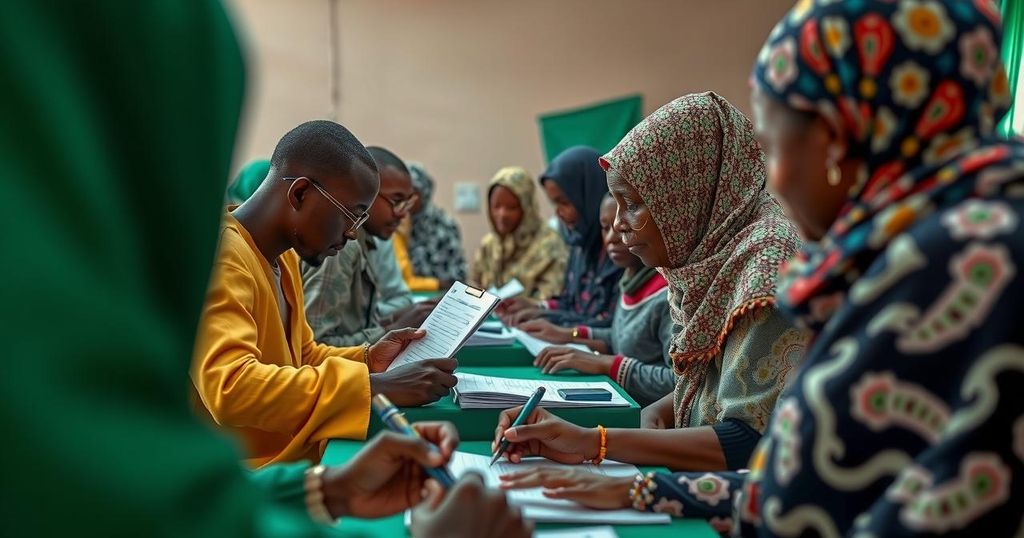Somaliland conducted its presidential elections smoothly, with polling closing at 6 p.m. local time. Over 1 million voters participated, and counting is currently underway, with results anticipated by November 21. The elections featured three candidates, including incumbent President Muse Bihi Abdi, and occurred amidst tensions related to a controversial agreement between Somaliland and Ethiopia.
Vote counting is currently taking place in Somaliland following a successful and peaceful presidential election. Polls closed at 6 p.m. local time, with over 1 million registered voters participating across approximately 2,000 polling stations in the region. The Somaliland National Electoral Commission (NEC) reported that the counting process commenced at the polling centers and will progress to district and regional levels. NEC Chairman Muse Hassan Yusuf expressed confidence stating that any minor technical issues reported had been resolved, and the final results are expected by November 21. The election featured three candidates: incumbent President Muse Bihi Abdi of the ruling Peace, Unity and Development Party (Kulmiye), Abdirahman Mohamed Abdullahi of the Waddani party, and Faisal Ali Warabe of the Justice and Development Party (UCID). Each candidate pledged to enhance democratic processes and promote economic growth, while also seeking international recognition for Somaliland, which has been striving for this status since declaring independence from Somalia in 1991. The electoral event occurred amid ongoing tensions between Somalia and Ethiopia, stemming from a contentious memorandum of understanding granting Ethiopia access to a portion of Somaliland’s coastline. This arrangement has sparked significant unrest in Mogadishu, which views Somaliland as part of its sovereign territory. The political atmosphere remains charged, with recent expulsions of Ethiopian diplomats by Somalia and failed diplomatic talks between the two nations regarding the deal’s implications. \n Despite these tensions, the election process in Somaliland was deemed peaceful, with General Mohamed Adan Saqadhi of the Somaliland Police Force affirming, “Thanks to Allah, the election took place democratically and peacefully. No incident was reported.” This electoral cycle marks the fourth presidential election since Somaliland’s declaration of independence, representing a significant step in its ongoing democratic journey.
Somaliland is a self-declared independent region situated in the northwestern part of Somalia, which has sought international recognition since its declaration of independence in 1991. Despite not being officially recognized, Somaliland has established functional governance structures, including its own political system, security forces, and currency. The region has successfully conducted democratic elections, demonstrating an ability to transfer power peacefully among rival parties. However, its quest for international legitimacy continues to be challenged by complex geopolitical relations, particularly with Somalia, which views Somaliland as part of its territorial integrity.
The recent presidential elections in Somaliland reflect a commitment to democratic governance and peaceful electoral practices, setting a positive precedent amidst regional tensions. With the preliminary vote counting underway and results expected soon, the electoral process signifies not only democratic advancements but also the ongoing struggle for international recognition that Somaliland has faced for over three decades. The situation remains fluid, with external political pressures influencing Somaliland’s aspirations for autonomy and stability.
Original Source: www.voanews.com






